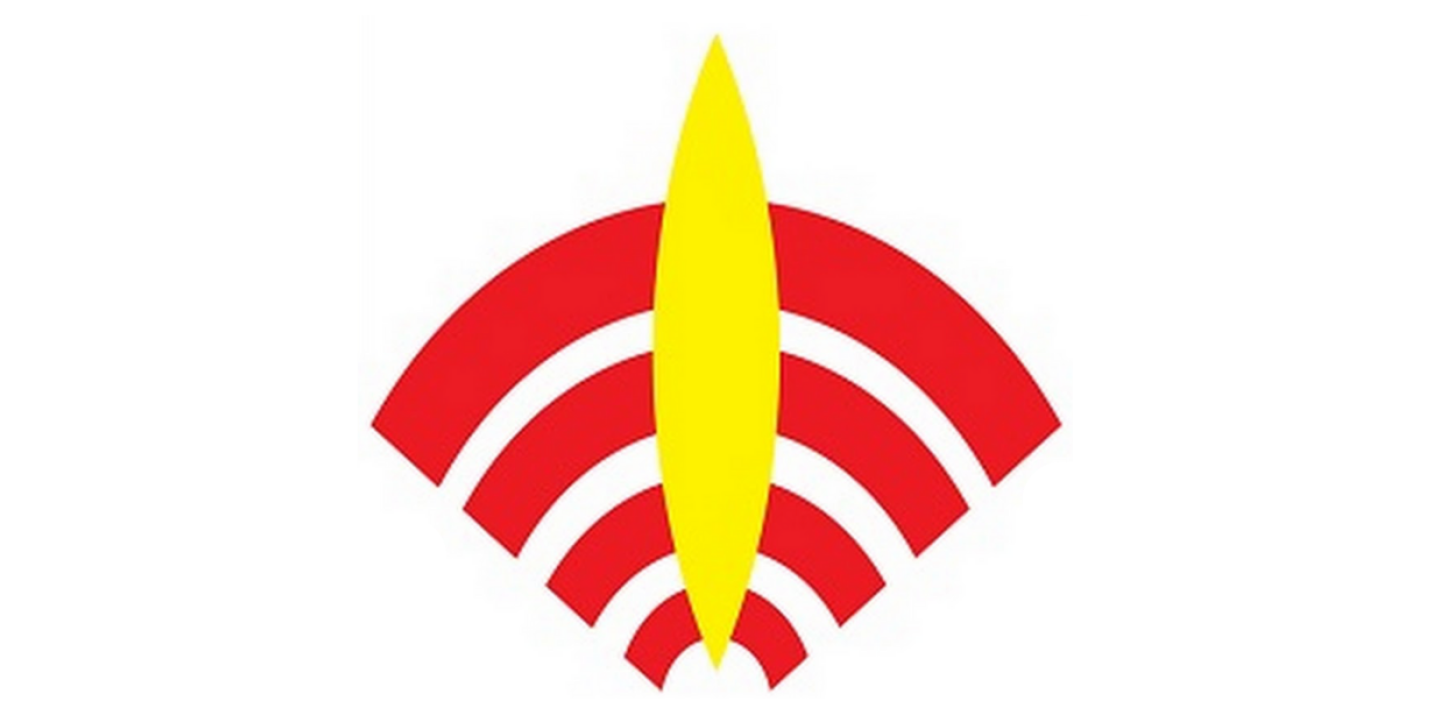"Hai amoite ndoikua'ai mbaeve/ Korap oguarê amoite tenonde/Apuka penderehe, nde ave reikotevê/ Che ñe'e avamba'e oi chendive."
These lyrics are from a song called Koangagua by Brô MC's, a rap group formed by musicians from the Indigenous community of Guarani-Kaiowá in Brazil. The song doesn't play on commercial radio, and you most likely wouldn't come across it unless you actively searched for it.
There is one radio station today, however, dedicated to broadcasting songs, news, interviews and shows made for and by Indigenous people in Brazil: Yandê Radio, the country's first Indigenous online radio station.
Yandê Radio aired its first broadcast in 2013, with the goal to spread and amplify Indigenous culture. "We use media tools to build our memory, our history, and to protect our tangible and intangible heritage," said Anápuáka Tupinambá, who co-founded the radio station alongside Renata Tupinambá and Denilson Baniwa.
Today, Yandê Radio runs a 24/7 program schedule and has correspondents across Brazil.
Reflecting upon Indigenous communication
"Yandê Radio is the result of reflecting upon Indigenous communication in the country," said Tupinambá.
At six years old, he developed an interest in the topic after listening to the radio program, Indigenous Show by USP Radio, hosted by Ailton Krenak. "At that time, I asked myself: when would we have our own media in Brazil?"
Born in São Paulo, Tupinambá moved to Rio de Janeiro, where he had the chance to work in community, local, alternative and commercial radio. His experiences in the workplace, combined with his personal and cultural background, helped him widen his perception on communications and on how important it would be to create a media outlet that serves Brazil’s Indigenous population.
This challenge holds a connection with the message behind Koangagua. The song title means "nowadays" in Guarani, and the lyrics address the obstacles of rapping in an Indigenous language. While there are almost 200 Indigenous languages spoken in Brazil, few initiatives exist to promote the language, arts and culture of Indigenous people.
A day at Yandê Radio
Broadcasting at an Indigenous radio station means having respect for Indigenous ways of living, listening and storytelling. Unlike legacy radio stations, where a piece of news or a spot is aired for every three songs played, Yandê Radio has a unique broadcast programming. "One cannot edit a rite. If I have the audio recording of a pajé [a shaman] talking for three hours, we will air the pajé talking for three hours. This is paying respect to the speech, the culture [and] to diversity,” said Tupinambá.
Yandê Radio's programming includes a music, interviews and news archive that is rebroadcasted every 72 hours. "We are not repeating [the program schedule], we are cementing knowledge,” said Tupinambá. “This is how oral traditions work, you repeat the story from memory around the bonfire, tell the stories and that's what keeps the memory of a people alive.”
Yandê Radio currently has 20 contributors spread across the country. Only Indigenous people can become contributors for the station. This reinforces the outlet’s identity as ethnic media, as Indigenous peoples take on the role of being their own interlocutors – a form of cultural and ethnic empowerment.
Current and historical challenges
Indigenous peoples face significant challenges around land ownership, human rights, health care and education. The team at Yandê Radio has experienced cyber attacks and has been monitored by federal police, explained Tupinambá.
"We have never had a commercial radio nor have we used frequency modulation. It's worth mentioning that Indigenous people have always been attacked by the non-Indigenous culture, by the colonization process. The Indigenous holocaust has been going on since the 1500s. Indigenous people are killed in Brazil for being Indigenous," he said. “How could we get an official radio broadcasting license when the State is the one who issues the license?"
On top of the lack of State support, the station also struggles with sustainability. "Every time I would take the project to funding rounds, people would ask: 'do Indigenous people consume this kind of product? But don't they live in the wild?’" said Tupinambá.
The radio station celebrated its 10th anniversary last year by connecting several Indigenous peoples in Brazil. "There are Indigenous peoples who didn't know about others in the South because they live in the North, and all of a sudden you start to listen to tales, stories, interviews and content made by peoples from a different territory," said Tupinambá
Yandê is the word for "we" in the now-extinct Indigenous language of Tupi: By creating a space for Indigenous communicators, artists and intellectuals from all over the country to be part of the conversation, Yandê Radio has helped increase the influence of these Indigenous peoples both on and offline.
Image: Yandê Radio logo.
This article was originally published on IJNet Portuguese and translated by Priscila Brito.

